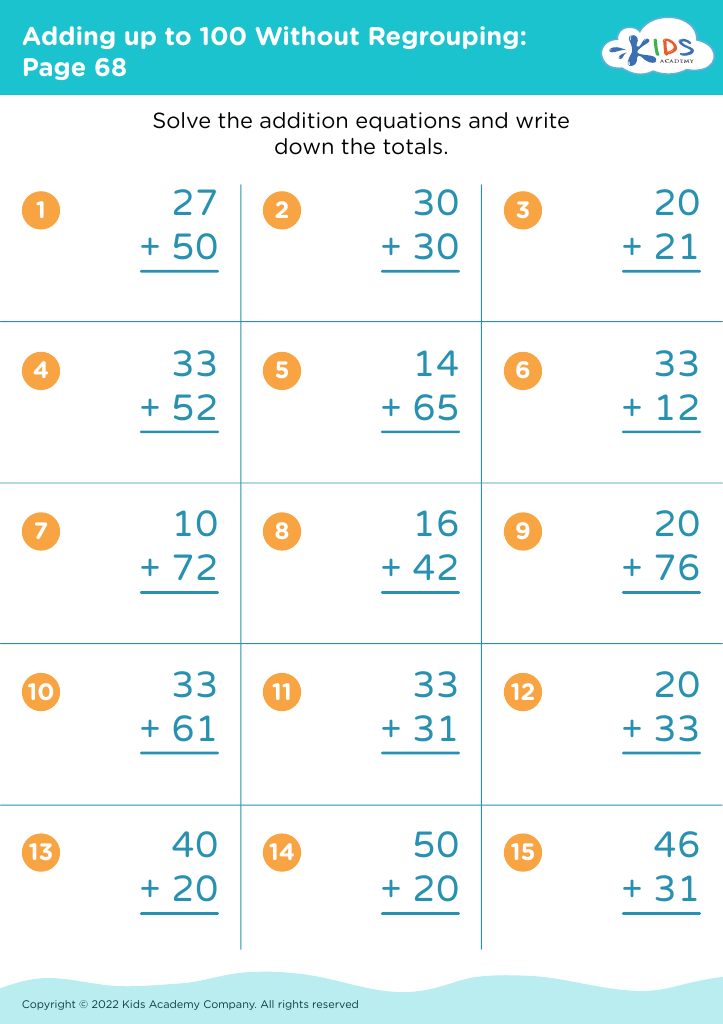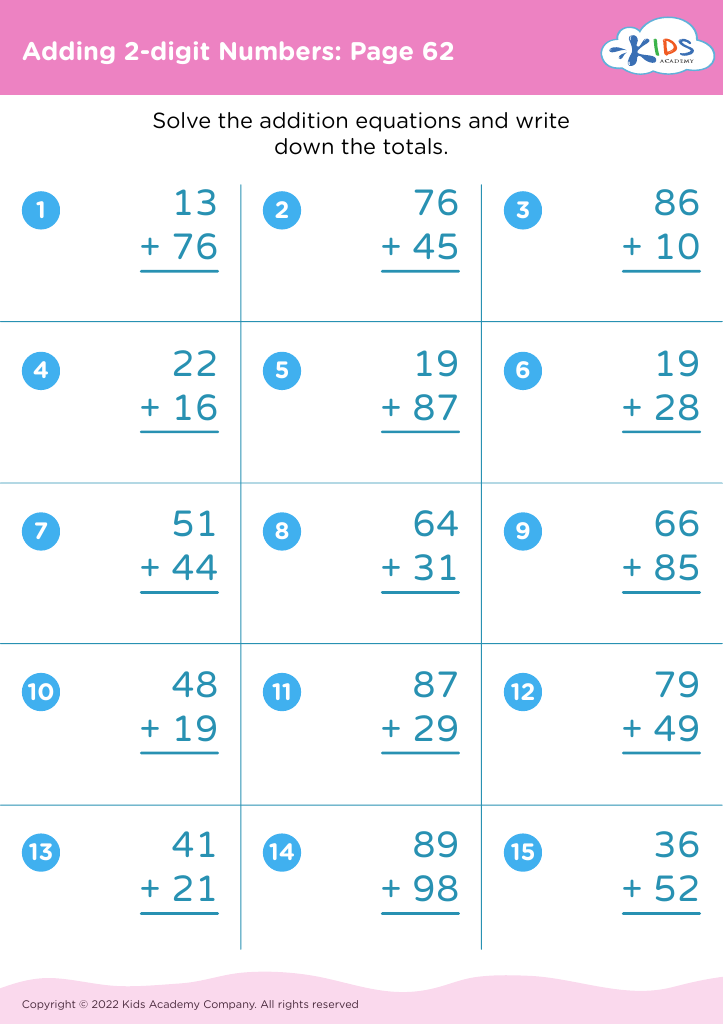Learning number patterns Addition Worksheets for Ages 4-8
3 filtered results
-
From - To
Explore our engaging "Learning Number Patterns Addition Worksheets" designed for children ages 4-8! These colorful and interactive worksheets help young learners develop essential math skills by focusing on number patterns and addition concepts. Through fun activities and problem-solving exercises, kids will enhance their understanding of sequences and improve their addition skills in an enjoyable way. Each worksheet is crafted to promote critical thinking, creativity, and a love for math. Suitable for classroom use or at-home learning, our resources make mastering number patterns an exciting journey for your little ones. Start their math adventure today and watch them thrive!
Learning number patterns and addition is critical for children aged 4-8 because it forms the foundation for their mathematical understanding. During these early years, children are highly receptive to learning and are developing their cognitive skills. Recognizing patterns helps them make connections between numbers and introduces them to the concept of sequences, essential in mathematics generally.
Understanding number patterns equips children with the skills to solve addition problems more efficiently. It enhances their ability to recognize relationships among numbers, fostering critical thinking and reasoning skills. When children see patterns, such as consecutive numbers or sums, they can predict outcomes, leading to greater confidence in their math abilities.
Furthermore, by nurturing an early interest in mathematics through patterns and addition, parents and teachers lay the groundwork for longer-term success in academic settings. The analytical skills built in these formative years translate to improved problem-solving abilities in later grades and real-life scenarios.
Engaging children with fun activities focused on number patterns and addition creates a positive learning environment. As they explore math in a creative way, they develop a love for learning and become more motivated, which will influence their academic journey for years to come.
























